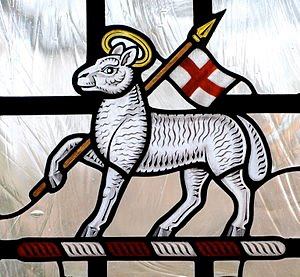World Communion of Christian Celtic Convergence Churches

The WCCC defines its Celtic Roots - This is very much an Old Catholic and Anglican faith, as it is the English Orthodoxy, certainly developing from the very beginning of our Christian faith in the British Isles and enduring to the present age.
Therefore, in our usage, Anglo-Catholic, seen in Anglicanism is inclusive of its Celtic origins, and our Patristic roots, also the Old Catholic or Medieval Catholic Church, the Protestant Reformation, the Wesleyan Evangelical Revival, the Oxford Movement, and the modern Charismatic movement. They are all part of our history and heritage.
We measure Anglican history not only from Thomas Cranmer forward, but from the Reformation backward. Celtic roots and Anglicanism in the WCCC is not shaped by its connection to the See of Canterbury, but by its relationship to history.
As Christians and fellow Anglicans, we are obviously 'in communion' so to speak, but 'not in the Communion' itself. There are many Anglicans in the world that do not aspire to be in the Anglican Communion, for whatever reason they so choose to remain out.
We may relate to you in several ways, please refer to our Relationship styles page.
What the elements of Anglicanism really are:
1. The priority and authority of Holy Scripture as the source of our knowledge of God.
2. The doctrinal guidance of the Catholic Creeds; Apostle's, Nicene, and Athanasian.
3. The truth that salvation is, in the final analysis, the gift of God by grace alone.
4. The use of the liturgy which is faithful to Scripture and embodies the experience of the church in worship over the centuries.
5. The historic episcopate, or order of Bishops, as a sign of the unity of the one Church of God. The English (Anglican) reformers insisted on the retention of the historic order of Bishops.
6. The threefold ministry of bishop, presbyter (priest), and deacon, as that ministry which has lead the Church to adopt since primitive times. We uphold the institution of Bishop, Priest and Deacon, but do not accept that only bishops may appoint other bishops. However to ordain other bishops, priests and deacons, one needs to be elected and installed by the church, or communion, that one is serving in.
7. The two Gospel sacraments of Holy Baptism and Holy Communion ordained by Christ for regular use in the Church and showing one-ness in faith - we can all agree as Christians. Yet some of our churches, uphold seven sacraments, as the ancient Catholic (Catholic - here meaning - the 'Universal') church. This is not problem and should not divide us.
8. The unity of the ministry of the Word and Sacrament in the service of Holy Communion. We choose to call this Eucharist.
9. The need for regular teaching and preaching from the Holy Scriptures.
10. The recognition that the visible unity of the Church on Earth is God's will.
11. The need for regularly reviewed Canon Law, to respond to the unfolding needs of the people and the Church.
12. The priesthood of the whole Church as a worshiping and praying society.
13. The recognition of the continuing ministry of the Holy Spirit and the impartation of gifts and ministries in our time.
14. A commitment to fulfill the Great Commission to winning the world to Jesus Christ into the Third Millennium.
C. The Communion's approach to liturgy is not to be based on legislative but normative practice, as defined by the Scripture, the Book of Common Prayer, and the historic practice of the Church.
D. We anticipate liturgical practice to be expressed in three broad categories; low or Evangelical Church, broad Church, and high or Anglo-Catholic Church. The practice of local congregations are recognized and determined by their relationship to their relevant bishops.
The Paradigm of our Ministry
Liturgical / Sacramental / Evangelical / Charismatic
Theology, Biblical Foundation, Five-fold Ministry
and Government, Orthodoxy, Personal Conversion, Power of the Spirit,
Universality, Evangelism & Mission, Spiritual Gifts,
Liturgical Worship, Pulpit-Centered Worship, Charismatic Worship
Social Action, Personal Holiness, Kingdom Incarnational understanding of the Church (based on theology, history, and sacramental elements of thought) Biblical and Reformational understanding of the Church (pragmatic and rational) Spiritual, Organic, and functional understanding of the Church (dynamic and informal) The World Communion of Christian Celtic Convergence Church is a Radical Church, if ever there was one.
We believe our saviour Jesus Christ was radical and we follow Him with all our heart.